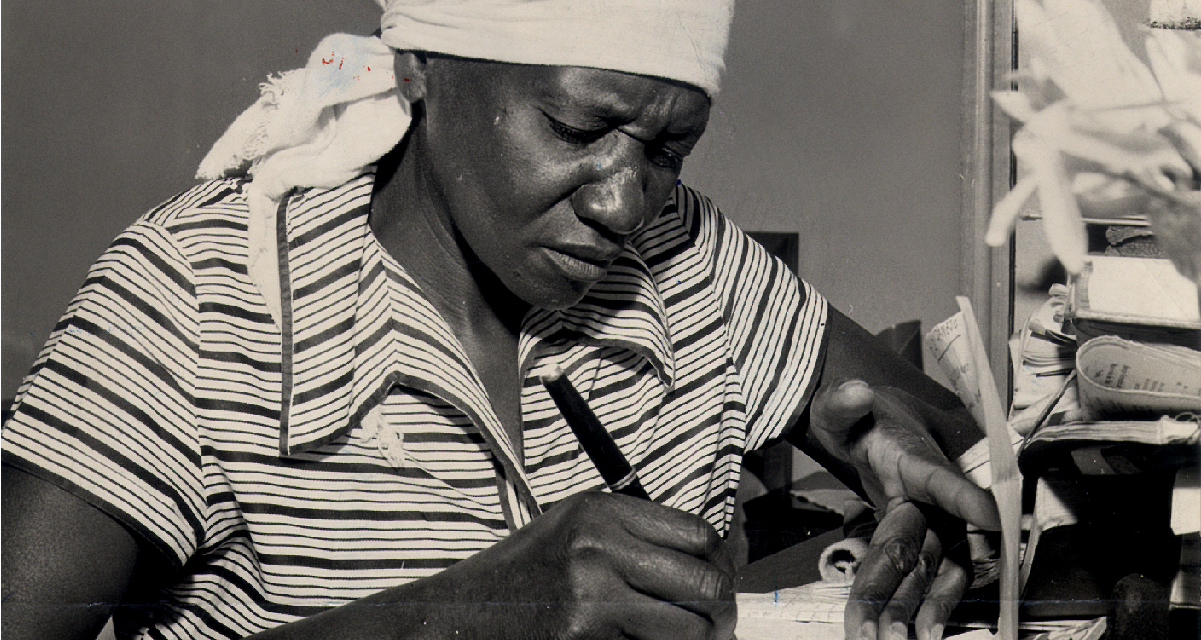Artists
A month before the release of Quarto de Despejo: diário de uma favelada [The Trash Room: Diary of a woman from the favela], a book that would sell more than one hundred thousand copies in 1960, Carolina Maria de Jesus wrote, “I know I am going to make enemies because no one is used to this type of literature.” The arduous daily life she narrated, in which an entire day spent searching for recyclable materials was almost always insufficient to feed her children, was transformed thanks to the book’s commercial success and the interest it attracted among journalists, celebrities, and politicians.
However, her literature proved too disconcerting to her readers in the medium term, as she predicted it would. Born in Sacramento, Minas Gerais, Carolina moved successively until reaching the city of São Paulo, where she began to collect notebooks and used them to experiment herself as a writer instead of selling them. Since then, she saw herself as an author who would frankly speak about her situation, conflicts, revolts, and dreams but who could also write poems, plays, novels, aphorisms, and short stories. A citizen who wanted to leave the favela to live in a brick house and who would like to circulate freely in the high literature’s “halls.” To progressive readers, such ambitions appeared as signs of alienation, lack of class consciousness, and vanity. For the openly racist, it was nonsense that aggravated the boldness of a poor black woman who should never even have been allowed to publish anything in the first place. And for the more absent-minded, it was an unprecedented conundrum that would require attention to unravel – attention that the publishing world and the general public were unwilling to offer Carolina.
The quantity and diversity of unpublished manuscripts kept in Sacramento are testimony to the violent silencing of her complex literary voice. The exhibition of a part of that material at the 34th Bienal – all written after the Quarto de despejo – emphasizes the importance of looking beyond this book, which tends to concentrate and reduce Carolina Maria de Jesus’ complexity. Together with the works gathered here, these unpublished manuscripts are also an invitation to think about the mobility of stories, lives, and bodies – which can occur in a conflicting way but signals the irrepressible need for transformation.


